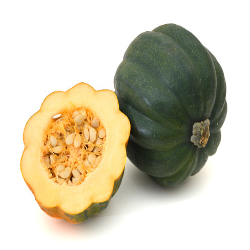Lettuce Nutrition facts
Lettuce

Lactuca sativa is a small sized annual plant that flourishes well under sandy, humus soil. There are about six cultivars varieties exist based on their head formation and leaf structure. Leaf types with more bitter taste are rather rich in nutrients as well as antioxidants.
Here are some traditional varieties of lettuce grown around:-
Lettuce leaves are one of the very low-calorie green vegetables. 100 g fresh greens provide just 15 calories. Nonetheless, they are the storehouse of many phytonutrients that possess health-promoting and disease prevenation properties.
Similar Food
-
 Acorn squash 40 Cal
Acorn squash 40 Cal -
 Amaranth greens 23 Cal
Amaranth greens 23 Cal -
 Artichoke 47 Cal
Artichoke 47 Cal -
 Arugula 25 Cal
Arugula 25 Cal -
 Asparagus 20 Cal
Asparagus 20 Cal
Source of Calorie
15
Calories
-
Carbs2.87 g 63%
-
Protein1.36 g 30%
-
Fat0.15 g 7%
How long to burn off 15 Calories?
*Approximate base minutes for a 25-year-old, 65 kg adult at moderate intensity.
Swimming
3
min
Jogging
2
min
Cycling
2
min
Walking
4
min
| Nutrition Principle | Nutrition Value | Percentage of RDA |
|---|---|---|
| Principle | ||
| Energy | 15 Kcal | 1 % |
| Carbohydrates | 2.87 g | 2% |
| Protein | 1.36 g | 2% |
| Total Fat | 0.15 g | 0.5% |
| Cholesterol | 0 mg | 0% |
| Dietary Fiber | 1.3 g | 3% |
| Vitamins | ||
| Folates | 38 µg | 9.5% |
| Niacin | 0.375 mg | 2% |
| Pantothenic acid | 0.134 mg | 2.5% |
| Pyridoxine | 0.090 mg | 7% |
| Riboflavin | 0.080 mg | 6 % |
| Thiamin | 0.070 mg | 6% |
| Vitamin A | 7405 IU | 247% |
| Vitamin C | 9.2 mg | 15% |
| Vitamin E-alpha | 0.29 mg | 2% |
| Vitamin K | 126.3 µg | 105% |
| Electrolytes | ||
| Sodium | 28 mg | 2% |
| Potassium | 194 mg | 4% |
| Minerals | ||
| Calcium | 36 mg | 3.5% |
| Copper | 0.029 mg | 3% |
| Iron | 0.86 mg | 10% |
| Magnesium | 13 mg | 3% |
| Manganese | 0.250 mg | 11% |
| Phosphorus | 29 mg | 4% |
| Zinc | 0.18 mg | 1.5% |
| Phyto-nutrients | ||
| Carotene-ß | 4443 µg | -- |
| Crypto-xanthin-ß | 0 µg | -- |
| Lutein-zeaxanthin | 1730 µg | -- |